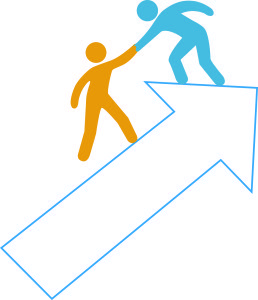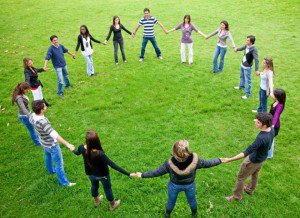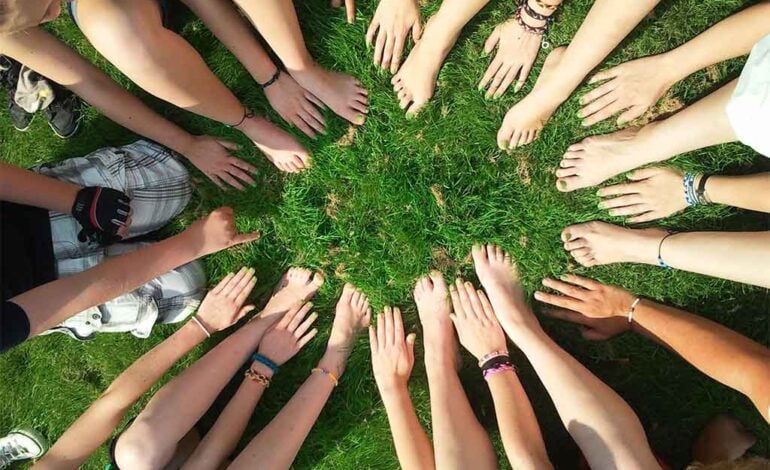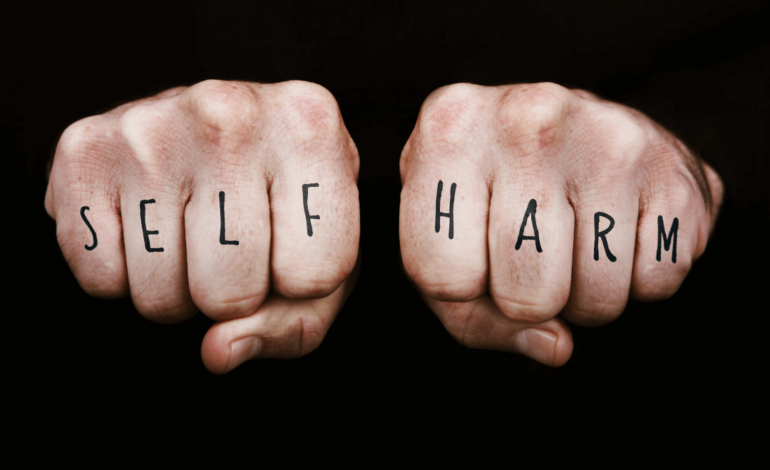Why does one person help another? Knowing that people are basically selfish, seeking the means to get ahead in a world that seems bent on knocking everyone down, why bother? It’s difficult enough just to ‘make ends meet’, so why would anyone spend precious time trying to reach out to someone else? It’s a futile effort. Why can’t everyone just help themselves?
Ask a Therapist.
Counseling is a helping profession. It is filled with people who have dedicated their lives to low pay and long hours. A counselor’s life is filled with listening to depressing story after depressing story, all while maintaining objectivity so they can provide needed guidance for each specific situation. It’s a hard job and can be filled with burnout, but there are those who not only accept the task but they joy in it. Why is that?
The Benefits of Being a Helper
People choose counseling as a profession, volunteer at pet rescue shelters and hospitals, stop when they see someone whose car has broken down on the side of the road because it provides them with a warm feeling. But it’s more than that. We are social beings who need contact, but who too often focus on our own issues to the exclusion of others.
This is one of the Problems Addicts Have.
So why do some people always seem to be helping others, getting involved in their communities and putting their own cares on the back burner? Because helping reduces stress, promotes community, makes people think better about themselves…basically, helping provides people with a positive outlook that an inward focus just cannot achieve. That’s what helping, or it could be called community service, is. It is an outward focus designed to make everyone’s environment better.
How Does Addiction Play into This?

Addicts can be very self-serving and self-centered. Because of their addiction, they forget everything (and everyone) else and their energy is spent on the substance or act. During this time the addict ruins relationships, becoming isolated, his or her only friend the addiction. To recover fully, the addict must rediscover other people and other actions. The substance abuser needs to get outside of self and see that there is value, and healing, in the world around them.
How Does Community Service in Treatment Help with Recovery?
In their past, most addicts have forsaken relationships, cut ties to people and places in their community and had to see the pity or disgust on other’s faces. The isolation that addiction, any form of addiction, creates is a false reality. To recover from this, addicts need to readjust their perspective and there is no better means of affecting this change than to serve others.
For the most part, addiction recovery focuses on the individual and tries to help them understand the antecedents of their addiction, discover the triggers that could lead to them using again and find coping mechanisms, other than their addictive substance or act, by which they can reduce stress. In other words, most recovery efforts are focused on the individual. But community service allows the addict to see how they can again be a vital part of a group. Some of the reasons AKUA uses volunteering and community service during the recovery process are:
- Being outside of self helps build character.
- By being able to step outside of themselves during recovery they get a better sense of self. The addict is allowed to rediscover who they are apart from the substance.
- Really builds self-esteem and self-worth.
- Past is dealt with a lot in recovery and it can be painful, so having the ability to take our past and help someone else is very therapeutic.
- Addicts worry about what people think about them and being able to give back provides self-esteem.
- Allows someone to see that they can give back to someone else in recovery even if they don’t think that they have anything to give.
Community service is an essential part of the process because it reminds the individual that they have worth and that they have something to give other people. The program at Akua is built around this premise.
What Types of Community Service Does AKUA Offer?

When searching for the right rehab facility, the patient should consider the entire program. At AKUA, we believe that giving back to the community (both in your own community and the one here at Akua) is an essential step in recovery. Research has shown that volunteering makes participants feel happier, free of stress, emotionally stable and healthier. It has these benefits no matter whether the individual is an addict or not. For the person in recovery, it has the added benefit of reigniting a lost sense of purpose.
Akua has Developed Volunteering Programs to Aid those in Recovery.
We believe that service starts at home. Making beds and participating in chores helps to build self-esteem. It provides immediate gratification.
People who have graduated from the detox or residential programs are encouraged to talk to people in currently in those programs. The graduate is able to give back by showing that addiction is not such a lonely place and there is hope for recovery.
Volunteers can also get involved in beach cleanup and going to Skid Row in Los Angeles to present recovery panels.
At Akua-wide service events, former clients return and talk about their recovery with residents.
Volunteering can be as simple as making coffee or handing out books before an AA meeting. It doesn’t have to be something grand, but it does have to allow the addict to step outside of themselves. Akua uses these programs because staff members have witnessed the results.
The Evidence of How Volunteerism Works to Help Akua Clients?

When a new patient comes to Akua, they are very often self-serving and have a sense that they are completely lost and hopeless. Upon initial interview, it may seem that staff members would be discouraged, but they have seen the results a positive program can provide. A consumer may enter self-serving, but, if he or she follows the program, they leave equipped to become again a vibrant member of their community.
We Have Seen Volunteers:
- Improve their self-esteem
- Gain a greater sense of value
- Realize that they have experiences that can lead to positive testimonials
- See the experience as gratifying
- Regain a sense of importance
- Develop self-kindness
Volunteering has numerous benefits and we would like to talk to you about this aspect, and all facets, of the programs offered at Akua.
Read This Related Article: “How addiction became my family’s disease“
24/7 ADMISSION HELPLINE 888-629-6707




